Space
Sign up for our newsletter
We summarize the week's scientific breakthroughs every Thursday.
-
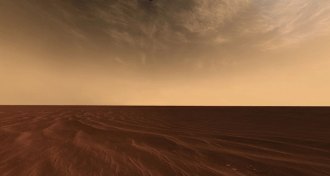 Planetary Science
Planetary ScienceCosmic dust may create Mars’ wispy clouds
Magnesium left by passing comets seeds the clouds of Mars, a new study suggests.
-
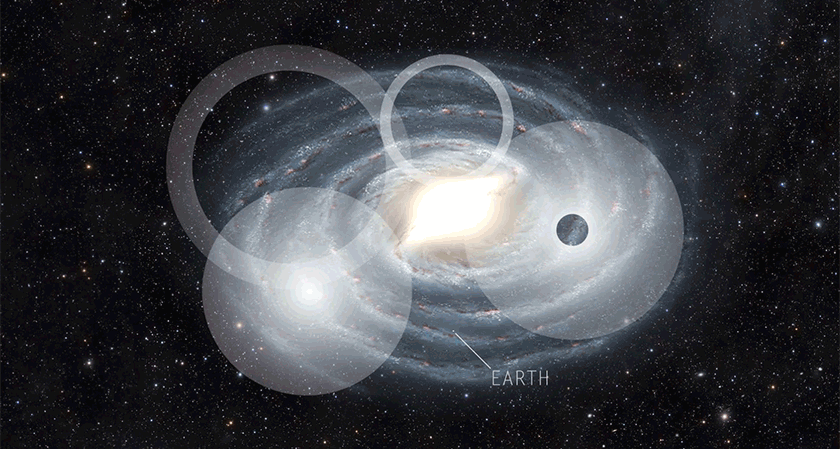 Astronomy
AstronomyWe probably won’t hear from aliens. But by the time we do, they’ll be dead.
Astronomers build on the Drake Equation to probe the chance that humans will find existing aliens. The answer: Not likely.
-
 Astronomy
Astronomy50 years ago, pulsars burst onto the scene
Thousands of pulsars have been discovered since the announcement of their detection 50 years ago.
-
 Physics
PhysicsSome meteorites contain superconducting bits
Scientists find materials that conduct electricity without resistance in two meteorites.
-
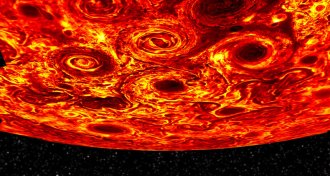 Planetary Science
Planetary Science4 surprising things we just learned about Jupiter
Polar cyclones, surprisingly deep atmosphere and a fluid mass spinning as a rigid body are among the latest discoveries at Jupiter.
-
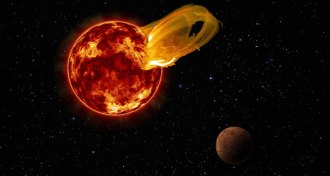 Astronomy
AstronomyMassive stellar flare may have fried Earth’s nearest exoplanet
A massive flare made Proxima Centauri 1,000 times brighter in 10 seconds, dimming hopes that its planet may be habitable.
-
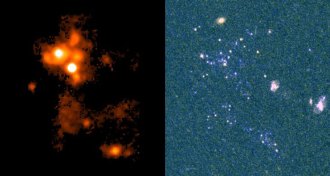 Astronomy
AstronomyLoner gas clouds could be a new kind of stellar system
Weird loner clumps of gas that have wandered for 1 billion years may have been stripped from a trio of larger galaxies.
-
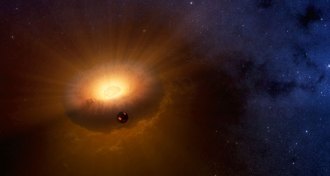 Planetary Science
Planetary ScienceHow a vaporized Earth might have cooked up the moon
A high-speed collision turned the early Earth into a hot, gooey space doughnut, and the moon formed within this synestia, a new simulation suggests.
-
 Cosmology
CosmologyHere’s when the universe’s first stars may have been born
The first stars lit the cosmos by 180 million years after the Big Bang, radio observations suggest.
-
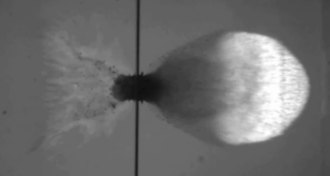 Astronomy
AstronomyWatch an experimental space shield shred a speeding bullet
Engineers tested how well a prototype shield for spacecraft would stand up to space debris by shooting it with a solid aluminum pellet.
-
 Cosmology
CosmologyRemembering Joe Polchinski, the modest physicist who conceived a multiverse
String theorists lament the death of Joe Polchinski, one of their field’s most esteemed and respected thinkers.
-
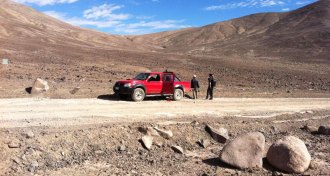 Life
LifeA rare rainstorm wakes undead microbes in Chile’s Atacama Desert
Microbial life in Chile’s Atacama Desert bursts into bloom when moisture is available.